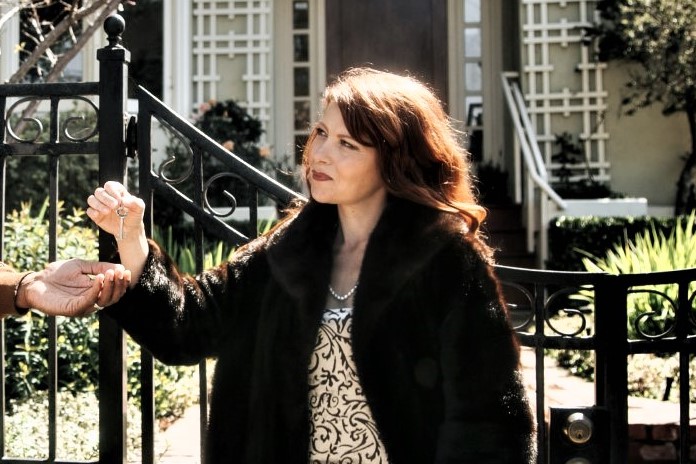
Women Battling Racial Bias
Intimate opera flashed and flickered with insight and drama in the world premiere of Allen Shearer’s “Howards End, America,” given by Earplay in San Francisco on Feb. 22.
Based on the E.M. Forster novel, it is now updated to mid-20th-century Boston, focusing on racial conflicts and class distinctions. Its unlikely principals are two white sisters, a hard-striving black man as society’s victim, and the millionaire’s family mansion (Has any edifice apart from Valhalla had a starring role in opera before?). As opera it is strong, warranting much more exposure than this single performance in a single little-theater production.
The essence of the opera is in the three-dimensionality of the two contrasting eligible sisters Helen and Margaret, peas out of the same well-motivated pod taking increasingly divergent paths. Margaret marries the racist magnate Henry Wilcox, and Helen takes up, largely out of pity, with the black man Leonard, each convinced that they will save the world in their own way. That transition is masterful, and each ended up with reason to believe that her way toward social justice was the right one. Margaret exposes the hypocrisy of the magnate and, in the process, gains the home as haven for Helen and her black baby.
Collaborating with his librettist-wife Claudia Stevens, local composer Shearer, 75, has created a compelling and very lyrical three-act work with strong dramatic statements and turns. His thoroughly listenable music is peppered with occasional quotes from “Lady Be Good” and, above all, Beethoven’s “Choral” Symphony, with its messages of brotherhood and equality.
Shearer produces stirring arias for Helen (beacon-voiced soprano Sara Duchovnay) and for the dying Leonard (tenor Michael Dailey, whose voice warmed up fully just in time). Henry was played resonantly by grand-opera veteran basso Philip Skinner. Soprano Nikki Einfeld (Margaret) had a focal role, not only with her refined soprano, but some of the most convincing theatrics of the night in a complex part.
At his most memorable, Shearer winnowed down the mixed orchestra of about 15 to the string ensemble for sublime moments in the tale, nicely conducted by Mary Chun.
Myriad scenelets, almost enough for a Broadway show, were well served by the mobile projections of Jeremy Knight’s creativity.
Some of the most arresting moments, like Leonard’s brief “Xanadu” outpouring, break off too soon. Long-suffering Leonard is a clichee by now, as the noble poetry-spouting, poverty-mired black man, thwarted by the white establishment at every turn. And the more pedestrian lines in the libretto could use burnishing in a reprise. But in music and story, it’s a solid entity for a lifelong composer of vocal music writing only his second staged opera on reaching a Verdian age of creativity. Next time, I’d hope Shearer’s creativity merited more than what is little more than a theater-equipped warehouse with a 300-seat grandstand devoid of orchestra pit.
Shearer’s world-premiere opera “Howards End, America,” present Feb. 22 by Earplay at Z Space, 450 Florida St., San Francisco. For more information: zspace.org or earplay.org